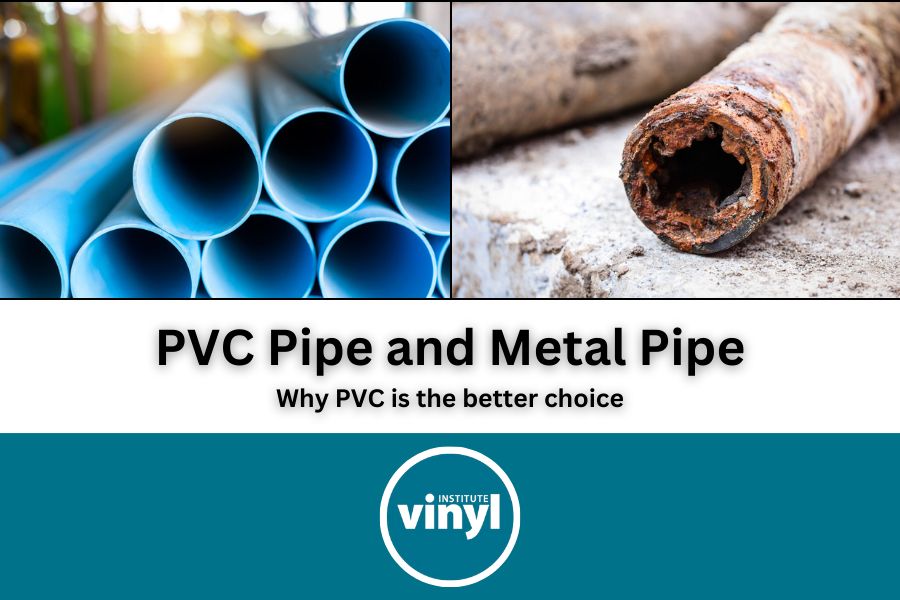This website uses cookies so that we can provide you with the best user experience possible. Cookie information is stored in your browser and performs functions such as recognising you when you return to our website and helping our team to understand which sections of the website you find most interesting and useful.
News
PVC Pipe vs. Metal Pipe: Why PVC is the Better Choice
One of the most important decisions when choosing materials for plumbing, irrigation, or construction projects is whether to use PVC (polyvinyl chloride) pipes or metal pipes. Over the recent decades, PVC has become the go-to choice for many applications. In this blog post, we’ll compare PVC and metal pipes and highlight why PVC is the better choice.
For starters, PVC pipes are significantly lighter than their metal counterparts. This makes them easier to handle and transport, especially on large construction sites or for DIY projects you might handle solo. The lighter weight also simplifies the installation process, reducing the need for heavy equipment or multiple workers. In contrast, metal pipes are heavier and require more effort to cut, shape, and fit, which can increase both time and cost. Beyond the ease of use of lightweight PVC, this also drastically reduces the overall carbon footprint of the pipe. Heavy metal pipes produce considerably more greenhouse gases in transit due to their heavy weight, making PVC the greener option.
Another notable drawback of metal pipes, especially in environments with high moisture or chemicals, is their tendency to corrode over time. Metal pipes are susceptible to rust and deterioration, leading to leaks, blockages, and costly repairs. PVC, on the other hand, is highly resistant to corrosion. It does not rust, pit, or corrode like metal, making it an ideal choice for water or sewage systems applications, particularly in regions with high humidity or acidic water.
Metal pipes can be prone to rust, scaling, and mineral buildup. PVC pipes, however, are resistant to these problems and tend to have a longer lifespan in most applications. PVC’s durability extends to its resistance to cracking, splitting, or warping under pressure or extreme conditions. This makes PVC an excellent choice for both underground and above-ground installations.
PVC is also highly resistant to a wide range of chemicals, including acids, alkalis, and salts, which can cause corrosion or damage to metal pipes. Whether used for drainage, irrigation, or chemical transport, PVC pipes are less likely to degrade from exposure to harsh substances over time.
Finally, PVC pipes are more energy-efficient than metal pipes. Their smooth internal surface reduces friction, which can help water or other fluids flow more freely, requiring less energy to pump through the system. A study from the Cadeo Institute found that upgrading the nation’s irrigation system’s 600,000 pumps to more energy-efficient models and using underground pipes could slash energy use in half. It can also eliminate 10 million metric tons of carbon emissions, replace the equivalent of four utility-sized coal power plants, and save farmers $2.8 billion.
Whether you’re installing plumbing in a new home, setting up an irrigation system, or looking for long-term durability in challenging conditions, PVC pipe offers a reliable and cost-effective solution that outperforms metal in many areas.


